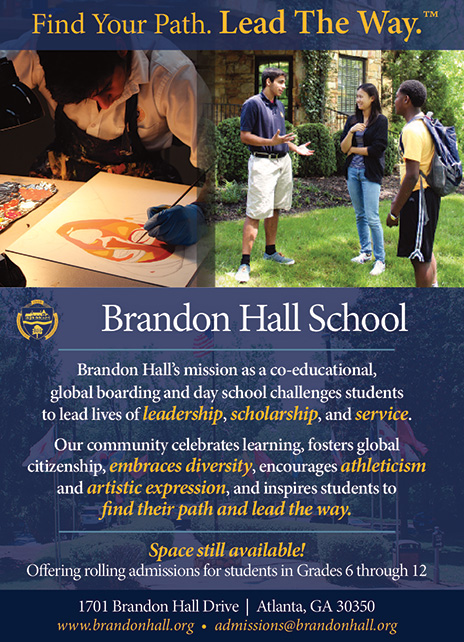Religious Diversity Benefits the State Department
Speaking Out
BY PHIL SKOTTE
Religious diversity matters to the work of the State Department. In this brief essay I will provide some critical personal examples of that fact, but let me start with an introduction and some background information about why having a faith can matter.
I was raised in a family that had a strong Christian faith, and we attended our Swedish Baptist church twice on Sundays and on Wednesday nights, too. Missionaries came to our church and showed slides of faraway places, and sometimes we even hosted them in our home. Above my bed was a “monkey rug” (made from the skin of nine monkeys) brought from Ethiopia by my missionary uncle. My mom put her wedding ring in the offering plate after a particularly compelling presentation by a visitor from Africa (my Dad said it was OK).
Having completed university, I went to Princeton Theological Seminary with the intention of becoming a minister or a missionary myself. However, life took some unexpected turns, and instead I joined the Foreign Service—but not before serving as a volunteer aboard the Christian service vessel MV Logos as a ship’s carpenter. It was there that I met my wife. For many years, I taught Sunday school (although not as faithfully as Jimmy Carter), and my wife and I participated in Bible studies and tithed (gave away 10 percent of our income).
Religion can be every bit as important as race, gender, sexual orientation and other aspects of our identity.
Many of my State Department friends and colleagues find my background a little unusual and, in fact, unintelligible. But when I joined the Foreign Service in 1993, I brought this identity and these commitments with me. Even though the State Department does not, at this writing, have any religion-based affinity groups, religion can be every bit as important as race, gender, sexual orientation and other aspects of our identity.
Now, after almost 25 years serving mostly as a consular officer, I can look back and see how my identity as a Christian person has been of great value to the State Department and its mission. Here I offer a few examples as evidence that religious diversity matters to the work of the State Department. I am sure many others from various faiths could offer their own examples of the value that faith-based people bring to diplomacy.
Education and Assistance
From the outset of my career, I sought out missionaries abroad for friendship and mutual encouragement. They educated me and showed me parts of foreign countries I would never have seen in my capacity as a diplomat. For example, a missionary in Manila took me on her nightly rounds working with glue-sniffing street children. Another introduced me to Muslim families in Quiapo and took me to the Golden Mosque.
In Rome, my various church contacts housed the legal permanent residents (LPRs) we had evacuated from Albania but could not assist with onward travel from Italy. When the management at the Holiday Inn complained about those LPRs bedding down in the hotel hallways at about 10 p.m., I called Catholics, Presbyterians, Methodists, Mormons and Baptists. Every church took in some of the evacuees until all could be housed.
In Hungary, I began to identify local resources to assist U.S. citizens in ways that the consular section could not. Many of those resources were graciously given by persons and institutions of faith. On one occasion, I had responsibility for a number of American prisoners undergoing two full years of pretrial detention. It would be difficult to visit each of them monthly.
Clergy Visits
With that in mind, I asked each prisoner if they wanted visits by clergy. Two said yes—one a Baptist and the other Jewish. The rabbi who agreed to visit the Jewish prisoner did such a fantastic job that the other Jewish prisoner among the group eventually also asked for clergy visits. These visits were so important to the well-being of these prisoners that I vowed to make the offering of clergy visits to prisoners by consuls a universal practice, if I ever had the chance.
That opportunity came when I became director of American Citizen Services back in Washington, D.C. The Bureau of Consular Affairs agreed immediately to my proposal to add the offer of clergy visits to the prison visit checklist for consuls worldwide.
CA agreed, not for the purpose of propagating religion, which would be inappropriate, but to offer added and critical support to our imprisoned citizens. I estimate that about one third of prisoners, if asked, will opt for clergy visits. This additional support to imprisoned citizens abroad costs the U.S. government nothing.
On another occasion, an American citizen experienced a serious medical issue in Budapest at a moment when I was both consul general and the control officer for a U.S. presidential visit event on Castle Hill.
I asked the patient if he wanted a visit by clergy, and he said yes. The clergy member and his expatriate church stepped in and brought the American food and a television, and even picked up his family from the airport and housed them.
They took great care of this recovering citizen, and it cost the U.S. government—you guessed it—nothing! I was able to focus on the president’s visit knowing that this citizen was in good hands.
Identifying Service Providers
In the Philippines, Rome, Hungary, Russia and Hong Kong, we relied on local resources for our citizens in need (e.g., free food, shelter, counseling and more). I worked hard to build strong relationships with the providers of these essential services; to discover new service providers, and to close gaps where they existed. Not surprisingly, many of these providers were and are people of faith.
Many of our wardens, it turns out, are also people of faith. When the Marine Security Guard on duty in Moscow passed me a call from a distressed American at 2 a.m., I reached out to an ACS contact, a pastor, who met me with his car at the embassy 20 minutes later. We took the American to church-funded lodging, and I gave him McDonald’s coupons. Three days later, he flew home.
As anyone who has served in West Africa will tell you, a lot of health services in the region are delivered by faith-based providers.
As director of American Citizen Services, I worked to systematize our tracking of local resources worldwide and to strengthen the warden network. These initiatives were folded into Secretary of State John Kerry’s MissionOne program, and served to strengthen our protections and services to our citizens at no cost to the government.
Some of the energy for these ideas came from my extensive interactions with resource providers, who often had a faith-driven service mentality. As a person of faith, I was always comfortable with these people, whether they were Christians, Muslims or Jews.
Evacuating Ebola Victims
On a Sunday afternoon in 2014, when State’s Bureau of Medical Services called to say that we needed to urgently evacuate an American missionary with active Ebola from West Africa, it was no coincidence that I already knew the mission involved. I also knew the administrator of the mission compound where most of the Ebola treatment in West Africa would take place. As anyone who has served in West Africa will tell you, a lot of health services in the region are delivered by faith-based providers.
The State Department, especially MED and personnel at the embassies, did a great job evacuating American Ebola victims from West Africa. I am sure they would have done so without me and regardless of anyone’s faith, but the connections already made on the basis of religious interest proved to be useful when the emergency came.
As I approach the end of my Foreign Service career, I can say with appreciation that the State Department, although appropriately secular in orientation, values the contributions of its religiously diverse workforce. I did not wear my faith on my sleeve in the workplace; never had a Bible on my desk or religious posters on the walls. But I brought a faith-based commitment to this career that has, in my opinion, benefited the department, its mission and our citizens.
Committed Muslims, Baha’is, Jews, Buddhists, Hindus and other Christians will have their own stories to share, and should do so. Their stories will help ensure that the State Department continues to understand and welcome the contributions that faith-based people bring to this institution and to our mission abroad.




